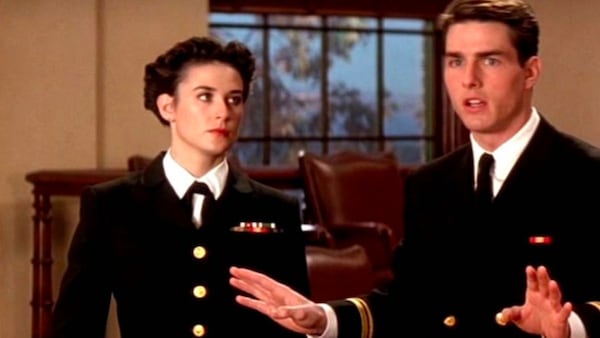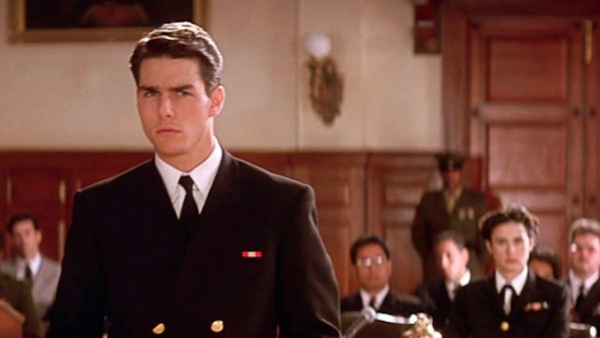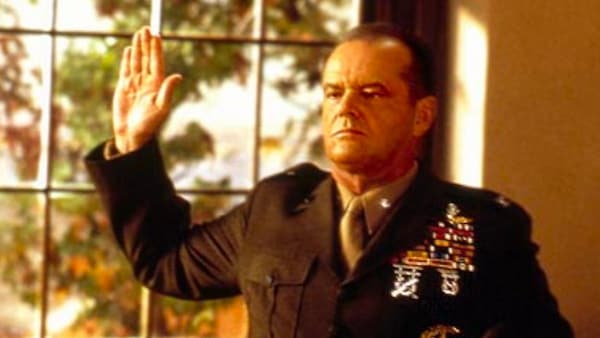A Few Good Men: An intriguing legal drama
Tom Cruise’s A Few Good Men was arguably one of the best courtroom dramas in recent Hollywood history. Here’s a revisit on how the film upheld codes of honour and valour.

Last Updated: 05.26 PM, Dec 22, 2021
Aaron Sorkin’s A Few Good Men is not your regular legal drama. The film’s plot revolves around two young Marine lieutenants who are charged with the death of Marine William Santiago’s death. The Marine at the Guantanamo Naval Air Station, in Cuba, died controversially after a hazing incident. Meanwhile, a nosy Navy legal ace in Washington, Lieutenant Commander JoAnne Galloway (played by Demi Moore) suspects that there is more to the story and wants to conduct an investigation. Over the course of the film, she is prodded by her superior to assign the case to a lazy Navy lawyer, Lieutenant Daniel Alastair Kaffee (played by Tom Cruise) because he can be counted on to settle the case out of court without generating public embarrassment.

Things get tense as high profile officers are put on trial and accused of ordering extra punishment to the concerned marines. While Kaffee is reluctant to take up the case, Galloway is enthusiastic at the prospect of defending the accused soldiers, one of them even carrying a ‘Code Red’ order by Colonel Jessup (played by Jack Nicholson). The accused are unwilling to say the truth to save the reputation of the Marines. The performances are top drawer from all quarters.
While Tom Cruise downplays the seriousness and the added frustration of the excellent script, Nicholson breathes life beautifully into his character. Nicholson knocks it out of the park with his portrayal of the arrogant and egoistic ‘colonel supreme’ and delivers an iconic monologue thereafter. The trial sequences also keep the audience at the edge of their seats and the timings of pauses and paces are on cue.

The whole movie leads up to the courtroom scene which concludes the film, with Kevin Bacon playing the role of the chief prosecutor assigned to convict the accused Marines. Jack Nicholson’s character in Cuba, is always fun to watch, as he improvises new obscenities and barks sexist comments aimed especially at Moore.
Cruise is an effective contrast to the snarling Nicholson, an immature young officer who wants to get the case over with at the earliest and ends up discovering himself. Bodison, the stubborn defendant with his ongoing internal conflict gives an interesting performance; the film allows it to happen almost as a separate scenario.

The main criticism of A Few Good Men, however, lies in the fact that the script underestimates the viewers' intellect. A scene shows Tom Cruise previewing his courtroom strategy to his friends. The strategy then works to perfection removing any element of surprise from the most important scene in the film.
The flaws are mostly at the screenplay level since it does not allow the viewers to figure out things for themselves, choosing instead to spell everything out. The key scene involving Jack Nicholson is thus undermined and robbed of suspense.

Having said that, the film is an ode to honour and righteousness. In showing the courtroom proceedings and clearly pegging the accused soldiers as victims [at least to the viewers], one would have thought Sorkin would give them their due. But the filmmaker’s choice to make them accountable for even the slightest of actions, is commendable.
Immediately then, the narrative harks back to public trials like the Nuremberg trials where many faced judgement with a simple defence working as their shield – “I was simply following orders.” The film stands testament to the fact that no matter the circumstances, one’s moral code ought not to shake.
Watch the film here .
